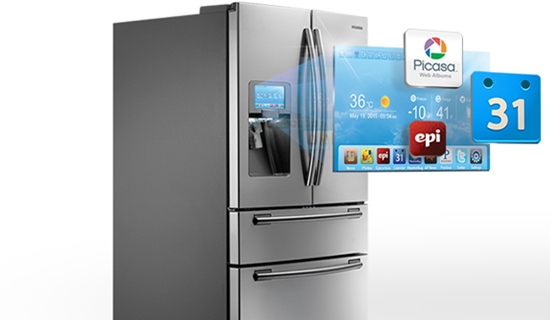For The Internet of Things to Work, Manufacturers Must First Work Together
Dec 11, 2013 20:03

The Internet of Things is happening. Fast. One day your eyewear will be able to tell your fridge to order milk when you run out of it. Or notify your spouse about what's needed. And if you forget, the TV might just notify you.
The future is indeed primed to get more integrated. With smart, connected capabilities into household items, it is only a matter of time before the Internet gets integrated into every device and gadget.
Gartner Research predicts "smart home" technology will add $1.9 trillion to the global economy by 2020.
The only limitations possible is that different brands may not be able to talk to each other. So nonprofit organization The Linux Foundation launched the AllSeen Alliance on Tuesday which is backed by 23 consumer electronics and software applications.
They include LG, Panasonic, Sharp and Qualcomm and they take on a vendor neutral approach with the help of open source software and collaboration development. When companies start using the same code, they can develop services on top of it. Different devices from different manufacturers will be able to talk to each other.
We're at least seeing some form of integration, albeit in a low level in gadgets, from Samsung's Internet-connected refrigerator, which tweets and streams music from Pandora, to the Nest thermostat, which is controlled via smartphone and learns your temperatures based on your behavior and schedule.
The AllSeen Alliance hopes these types of products will work together in the future.
"In the future, everything will be connected, communicating and intelligently sharing resources, and the alliance is a strong step in that direction," the spokesperson added.
Will your Samsung smart fridge be able to talk to your LG TV in the future? Let's hope so.







































































